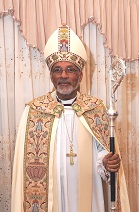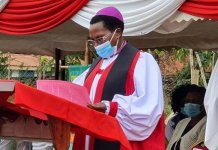The Archbishop of the West Indies has urged the Jamaican government to honor its pledge to transform the island nation from a constitutional monarchy under King Charles III to a republic. Speaking at the 153 meeting of the diocesan synod on 2 April 2024, the Most Rev. Howard Gregory said: “We must support and advocate for the stepping up of the announced process of constitutional reform to enable the country to achieve republican status within the Commonwealth.” The 153rd annual Synod was held at the Parish Church of St James in Montego Bay, St James, under the theme ‘Yesterday, Today, Tomorrow: Celebrating Service, Guarding Justice, Affirming Hope’.
Jamaica’s main political parties, the Jamaica Labour Party and the People’s National Party, have endorsed adopting a republican form of government. – subscribe to the position, and the current Prime Minister of Jamaica, Andrew Holness, has announced that transitioning to a republic will be a priority of his government. In June 2022, the government of Prime Minister Andrew Holness said it was his intention that Jamaica become a republic by the time of the next general election in 2025. To achieve this goal requires a two-thirds vote by parliament along with a national referendum.
In his presidential address to synod, the archbishop touched upon the Anglican church’s past history with slavery. “As a community of faith, we acknowledge, with regret, the injustices and inhumanity of our ancestors in the faith, even as we recognise that our identification as Anglicans occupies a special place in our hearts and life as members of what has become today the Anglican Communion.”
The archbishop, who has lobbied the Archbishop of Canterbury, the Most Rev. Justin Weby, to pay reparations to the West Indies for slavery added: “God speaks to the life of the person who has been wronged in the most heinous ways, the seemingly natural retributive and revengeful spirit is transformed…Restorative justice becomes an option.”
The church’s slave owning past should be a spur to removing the King from the Jamaican constitution, he noted, while also urging support for the Caricom Reparations Commission’s 10 Point Plan.
“In light of what has been advanced in terms of our history, our association with the experience of colonialism, and our commitment to be guardians of justice, we unashamedly affirm that a good place to begin at this time in refocusing our mission is for us to be engaged in the conversation concerning reparative justice at the congregational and national level,” he said.
While the British government had so far declined to discuss “reparative justice” the Church of England’s Church Commissioners had acknowledged: “complicity in an abominable trade that still scars the lives of billions … and in penitence and hope … proposed the establishment and investment of £100 million of permanent seed capital in communities damaged by African chattel enslavement’s legacy of racism and disadvantage”.
He also urged the government to reorder the appellate legal system, removing the Privy Council as the final court of appeal and in its place joining the Caribbean Court of Justice. We must “stop demeaning ourselves by claiming that we cannot trust our Caribbean jurists to act with integrity,” he said.
The archbishop added: “If we cannot trust our jurists, on what basis should we trust any other institution of governance within our nation and region to defend justice and act with integrity?”










